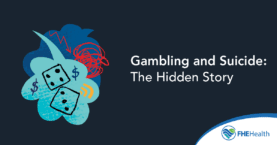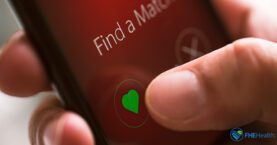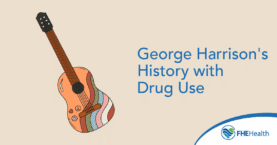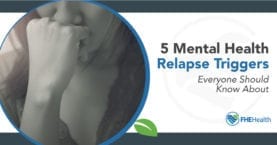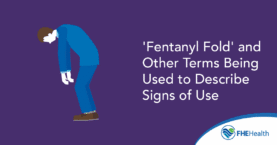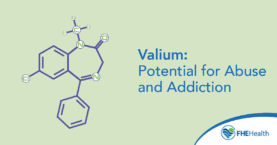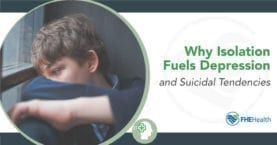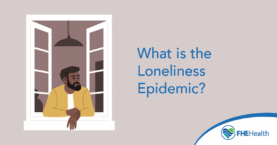When you think about the intersection of rock and roll and substance use, few stories are as reflective and instructive as George Harrison's. The "quiet Beatle" was remarkably candid about his experiences with drugs, offering insights that can help you understand the allure and consequences of substance use. By ... Read More
Learning Center
FHE Health is dedicated to educating the American public—especially individuals, families, and communities—about mental health and substance abuse topics. In our Learning Center, you'll find articles on alcoholism, substance abuse, behavioral and mental health, and other treatment-related issues. Our articles are written both for the person in need of treatment as well as loved ones seeking more information. We also provide information for those who have gone through treatment and are building a new life in recovery.
George Harrison’s History with Drug Use
Mental Health Relapse – What is it?
With 12.8% of adults dealing with feelings of anxiety and 4.8% of adults experiencing depression, mental illness is a daily reality for millions of Americans. Therapy can ease the symptoms, but it doesn't offer a cure--and for someone who's already on the edge, a single argument or setback could trigger a mental ... Read More
‘Fentanyl Fold’ and other terms being used to describe signs of use
Like many medications intended for pain management, fentanyl is an effective, but dangerous, part of treatment in healthcare. This synthetic opioid drug is extremely potent, with a June 2025 National Institutes of Health report indicating a fatal dose can be as small as 2 milligrams. With growing news coverage on ... Read More
Valium: Potential for Abuse and Addiction
Valium is a prescription medication designed for short-term use. When used according to the prescription instructions, it offers temporary relief from anxiety and other distressing symptoms. Unfortunately, Valium also has addictive properties, causing some people to misuse it. For example, someone who's prescribed a ... Read More
Why Isolation Fuels Depression and Suicidal Tendencies
With tens of millions of Americans experiencing a mental illness each year, it's no surprise that these conditions occasionally overlap with substance abuse disorder. To make matters worse, addicts and isolation often go hand-in-hand. As people isolate themselves, they may suffer from increased depression and ... Read More
What is the Loneliness Epidemic?
In this age of technological advancement, it's easier than ever to build social connections. Despite this, researchers are finding that people feel more isolated and lonely than ever before. Below, we shed light on the loneliness epidemic by outlining its risks and providing a roadmap for addressing it. Defining the ... Read More
How to Taper off Suboxone
When you're considering how to get off Suboxone, it's important to understand this journey will be unique to you and require a personalized approach. Opioid use disorder (OUD) recovery isn't a one-size-fits-all process. What works for one person may not work for another, which is why medical supervision and ... Read More
How to Choose a Sponsor: Qualities to Look for in a Recovery Mentor
In Alcoholics Anonymous, finding the right sponsor is one of the most important decisions you need to make in early recovery. A good sponsor can provide guidance, accountability and support as you work through the 12 steps and navigate sobriety. But with so many people at the meetings, how do you know who's right for ... Read More
